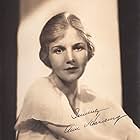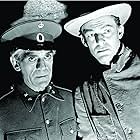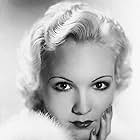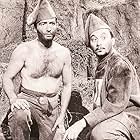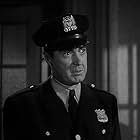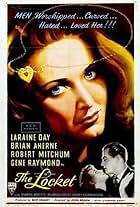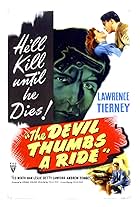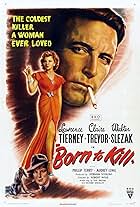If you're looking for the antidote to Since You Went Away-style hankiefests, or musicals about squeaky-clean GIs and their even squeakier cleaner girls, Those Endearing Young Charms fits the bill. Imagine a World War II romance with a lunchtime on-set rewrite by Louis-Ferdinand Celine ( "Women love war; it goes straight to their ovaries" ) and you might come up with something like this film, which lays on the syrupy romance and the goggle eyes while secretly brimming with misanthropy that would make Kubrick proud.
Lower middle-class Laraine Day is seduced by the wealthy officer played by Robert Young, while being chased by idealistic cadet Bill Williams. Young makes no bones about being a skirt-chaser with a heart of purest copper. The spectacle of the film is in Day's self-mutilating puppy dog devotion to a lost cause, and what it says about female masochism and love itself in a world of organized murder. The director plays it totally straight so that the sentimental target audience would be satisfied, while transmitting his message in code, as it were, to future generations who can read between the lines.
The film has many touches to make the concept plausible, such as when Day is taken to Young's base and immediately begins cooing over a phallic B-12. Soon afterwards, the waitress comes over to the table and the jests of the soldiers suggest that she has been a lazy Susan that all of them fed off of at least once, and then -- judging by her bitter hardness -- discarded. The idea of these being "good soldiers fighting a just war" doesn't seem very plausible in this instance. It seems all wars bring with them certain personal motivations.
The script locates the epicenter of innocence and true romance not in the woman but in Bill Williams, a kind of fetal Parsifal. He reminds you of the guy in The Canterbury Tales whose dream girl, who he unknowingly catches in bed with another man, tells him to close his eyes before sticking her butt out the window for him to kiss, followed by the raucous laughter of her and her real boyfriend -- Chaucer then says succinctly of the young man "For woman's love he cared no more." Williams goes through a similarly elaborate process of inoculation with Laraine Day. He proceeds through all the stages of devotion and its aftermath: puppy love, courtly wooing, brotherly support, then noble renunciation, none of which she notices.
But at the end, after giving up what he never had, he says, looking visibly exalted "Why do I feel so good?" That's the question that stays with you from this film.
P.S. The title seems to be sarcastic not only about the allure of youth but about its lead actor!










